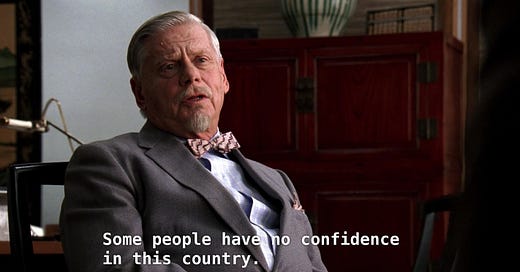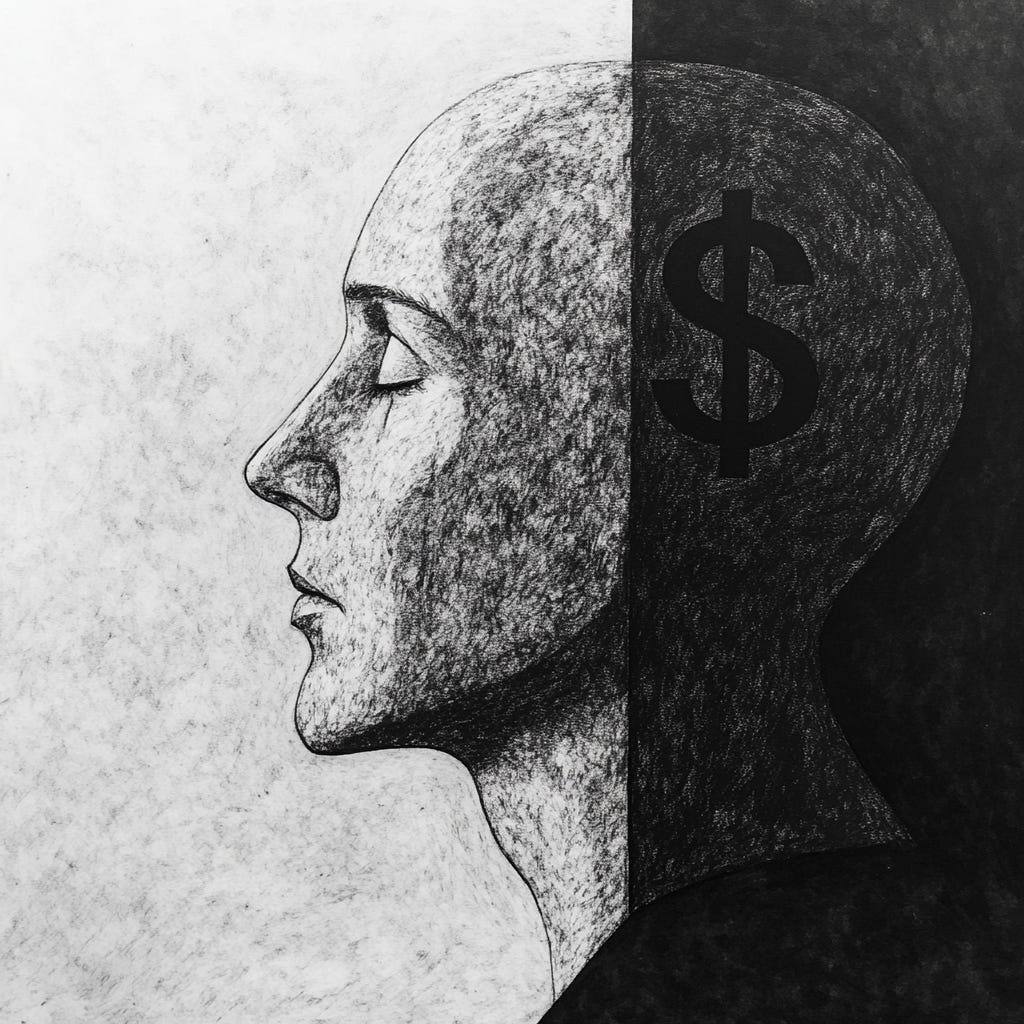Why Fortunes Are Lost (Why Money Work is Inner Work)
“Until you make the unconscious conscious, it will direct your life and you will call it fate.” ―C.G. Jung
At the height of the COVID bull market, Peloton was valued at $50 billion and its CEO Jon Foley was a billionaire — on paper. He told his board Peloton would be a trillion-dollar company eventually. “Don’t say that again,” was the response. “It makes you sound like an idiot.” Foley borrowed against his stake in the company and when the stock collapsed, he was forced to sell prized possessions like his Hamptons home.
“You know, at one point I had a lot of money on paper,” he reminisced. “I’ve lost all my money. I’ve had to sell almost everything in my life.”
Before writing bestsellers, Frederick Forsyth was a journalist and covered crises like the 1960s Nigerian Civil War. His reports of the country’s terrible famine, he wrote in his memoirs The Outsider, contradicted the messaging by British officials. He was booted from his job. Forsyth became cynical and distrustful of Britain’s institutions and its “mandarins.” With his career taking hits, he processed his experiences into spy thrillers.
Years later, “on a bright, sunny morning in the spring of 1990,” he wrote, “I learned that financially I had been completely and utterly ruined.” His London-based financial advisor turned out to be a fraud.
David Milch’s traumatizing childhood created a genius for observing people and a brilliant ear for dialogue. Milch had to alchemize his experience and created TV shows like NYPD Blue, Deadwood, and Luck that earned him tens of millions of dollars. Late in life, he lost his money in a spree of gambling and spending.
There is a tragic irony to how these three lost their fortunes large and small. Beliefs and abilities that fueled their rise contained the seed of (financial) undoing. It is as if their unconscious proved a point: I can make you, and I sure as hell can break you.
As an entrepreneur, Foley needed conviction bordering on delusion to build his venture. His dreams were so big and vivid, they prevented him from taking chips off the table.
The man who embezzled Forsyth’s money got off easy. The Nigerian famine, Forsyth noted, “deprived me of any faith or trust in the senior mandarins of the Civil Service.” The trial “did the same for my belief in the legal system and the judiciary.” I couldn’t help but think the way he lost his money ‘proved’ what he already believed about the corruption of Britain’s establishment.
Milch was well aware that he carried what he called his father’s “demonic” aspect. He was driven to deep introspection, drug use, and the thrill of gambling whose excitement temporarily suspended the chorus of inner critical voices — until it sunk him.
“Practically everything dies in business,” Charlie Munger once said. “Once I understood that, I think it made me a better investor.” The risk of losing your hard-earned money lurks constantly and in infinite variety.
I used to think the answer — the key to financial success — was knowledge. Financial education is valuable, but these three people were smart and faced no lack of access to information or advice. Instead, knowledge played second fiddle to character traits, biases, and habits. Good behavior beats sophistication (essentially Morgan Housel’s argument in The Psychology of Money).
Now I believe that success with money also reflects our unconscious beliefs about the world, ourselves, and money. It’s like that scene in Mad Men.




